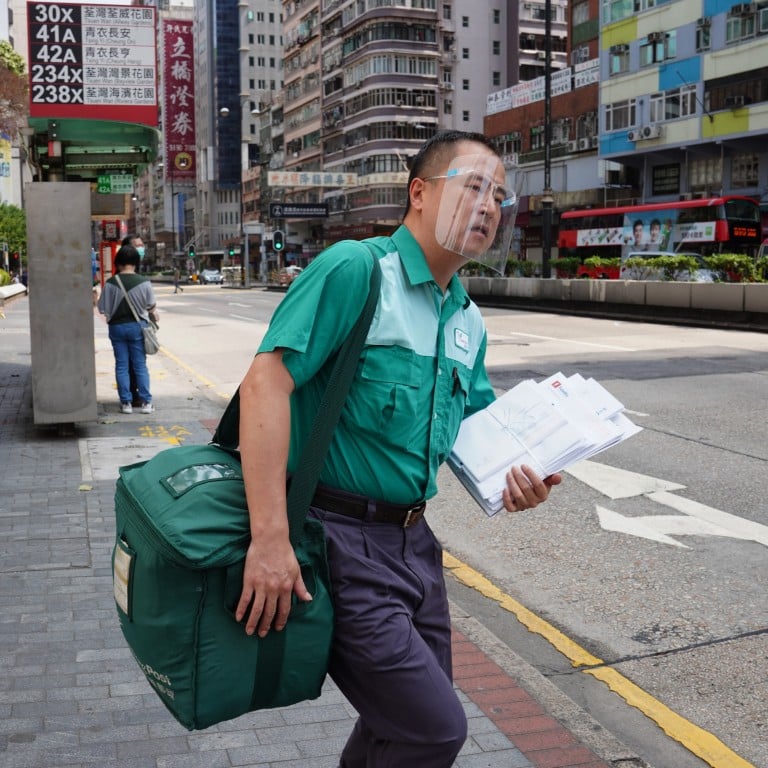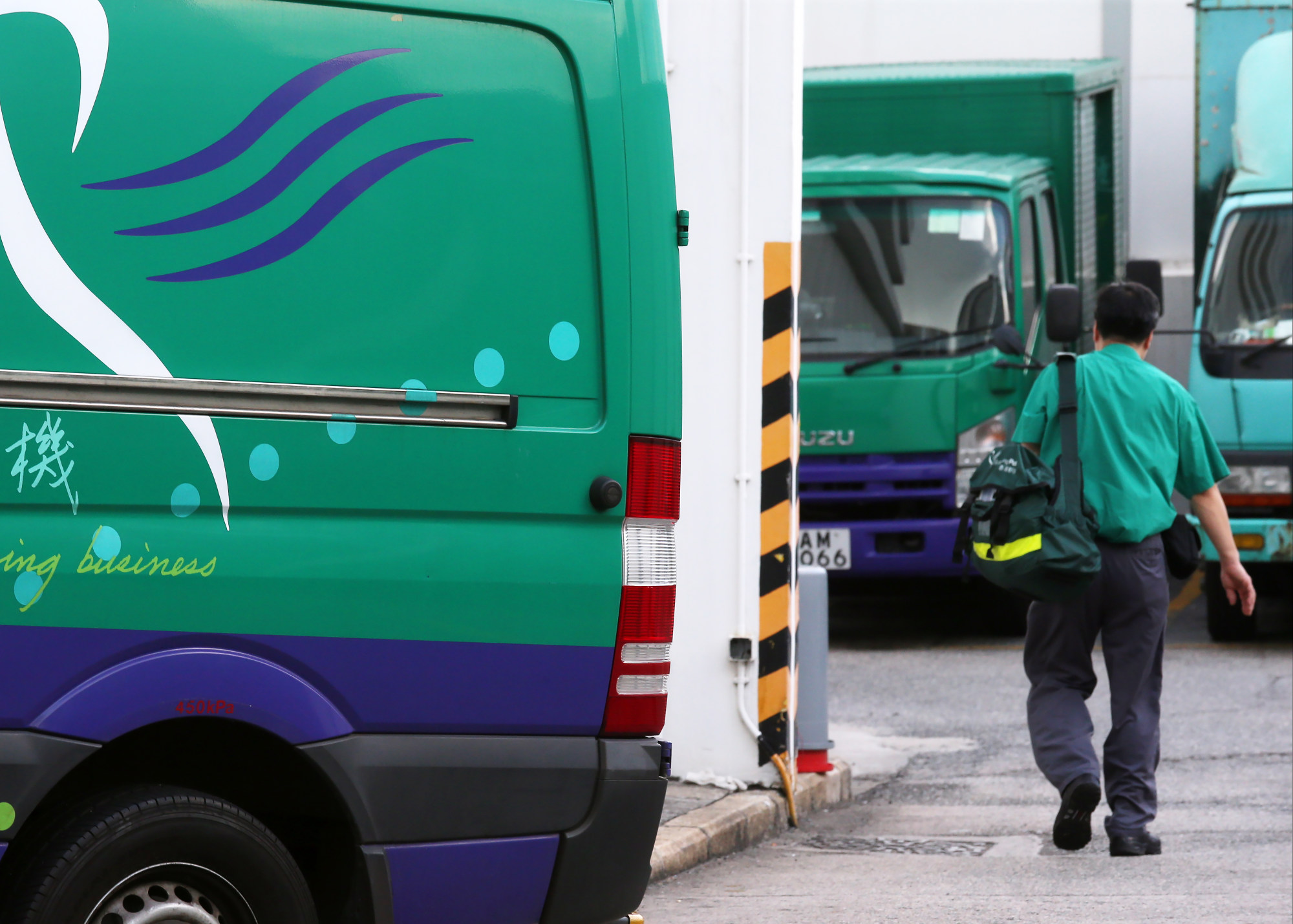
Loss-making Hongkong Post braces for more challenges amid Covid-19 restrictions, pins hopes on cross-border e-commerce
- Hongkong Post has recently been forced to temporarily suspend mail services to certain countries, such as Canada and Australia
- The postal service sees growing opportunities in e-commerce, especially in the Greater Bay Area
Hongkong Post is government-owned but run on a self-financing basis. It recorded a HK$198 million (US$25 million) deficit in the 2020-21 financial year along with a 23 per cent drop in volume of international mail, said Postmaster General Leonia Tai Shuk-yiu, who took up the role last September.
“We anticipate the situation will remain quite challenging. We still have a lot of difficulties in seeking airfreight capacity, that’s why we still have to suspend some services,” she told the Post. “We hope that it will soon subside so airfreight operations can return to normal.”
In addition to the punishing competition in the logistics sector, the reduced cargo capacity for airlines has also contributed to the company’s challenges as the city battles a fifth wave of coronavirus cases.
Hong Kong has grown more isolated as aviation hub: global airline association
Hongkong Post has recently been forced to temporarily suspend mail services to certain countries, such as Canada and Australia.
Authorities also aim to develop the bay area into a competitive logistics and postal hub.
Tai said e-commerce mail now constituted about 70 per cent of total mail handled by the firm, compared with a decade ago when half of it was traditional post.

She also noted cross-border import and export trade for the mainland reached about HK$2 trillion in total in 2020, a 30 per cent rise from 2019.
“The figures show the GBA can constitute a very significant proportion of e-commerce business. That’s why we want to develop our business in that direction and contribute to its development,” Tai added.
Hongkong Post will also use its soon-to-be revamped Air Mail Centre at Chek Lap Kok to extend its reach into the bay area. The facility is expected to be operational by late 2027 as the Legislative Council approved HK$4.61 billion in funding for redevelopment in May last year.
Bravo Transport Services sells stake in Octopus amid Hong Kong’s fifth wave
First built in the 1990s, the centre was originally designed to mainly handle letters, making it ill-adapted to deal with current and future demands for e-commerce.
Tai said the centre’s annual handling capacity would increase more than fourfold from the existing 40,000 tonnes, to 180,000 tonnes.
“With a fit-for-purpose design, intelligent technologies and up-to-date machinery, the new AMC will enable Hongkong Post to start a new chapter with enhanced efficiency and expanded capacity to cope with the demand for cross-border e-commerce postal services,” Tai said.
The organisation also plans to adopt a robotics mail sorting system to enhance productivity.
Tai said this would automate manual processes, such as address bar code scanning and mail sorting work, to keep up with growing e-commerce traffic.

